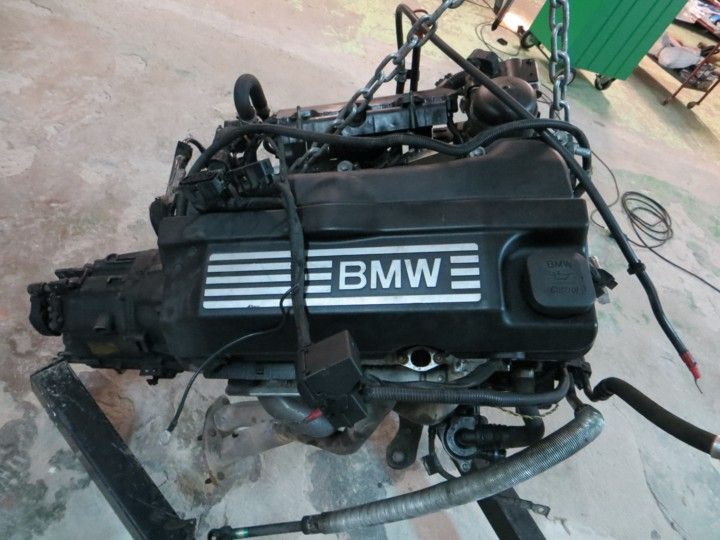BMW 318ti: Efficiency Specifications and Qualities Explained
BMW 318ti: Efficiency Specifications and Qualities Explained
Blog Article
Essential Considerations for Selecting the Best Engine for Your Demands
In the realm of picking the optimal engine to meet your demands, several vital elements need meticulous factor to consider to guarantee optimum performance and performance. From the nuanced balance in between power and efficiency to the often-overlooked elements of upkeep and service demands, each element plays a critical duty in identifying one of the most suitable engine for your particular demands. As the complexity of engine innovations proceeds to evolve, discerning one of the most fitting choice demands a deep understanding of the interplay between different factors to consider. By exploring the complex internet of aspects that underpin this decision-making process, a more clear path arises towards picking an engine that not only fulfills however surpasses your expectations.
Power and Efficiency
When evaluating engines for ideal efficiency, it is crucial to prioritize both power outcome and performance. Efficiency refers to exactly how well the engine transforms gas into functional power. By meticulously assessing both power and effectiveness, you can pick an engine that delivers optimal efficiency and meets your demands properly.
Fuel Efficiency and Economic Climate
Gas effectiveness refers to the engine's capability to convert gas right into power with very little waste, directly impacting operating prices and ecological sustainability. Engines with greater fuel efficiency not just minimize fuel expenses but additionally reduce carbon discharges, contributing to a greener procedure.

Compatibility and Application
Considering the fuel effectiveness and economy of an engine, the next vital aspect to address is its compatibility and application within particular functional contexts. Compatibility refers to how well the engine integrates with the general system or tools it powers.
Moreover, the application of the engine is similarly crucial. Various engines are designed for particular objectives, whether it be commercial machinery, marine vessels, vehicles, or power generators. Recognizing the desired application permits the choice of an engine that can supply the needed power result, torque, and operational qualities. A high-revving engine created for efficiency cars and trucks would certainly not be ideal for sturdy building and construction tools that calls for high torque at reduced speeds.
Upkeep and Service Demands
Upkeep and service image source demands play a crucial function in ensuring the durability and optimum performance of an engine. Normal maintenance is important to protect against break downs, expand the lifespan of the engine, and preserve its performance. When choosing an engine, it is essential to take into consideration the maker's advised upkeep timetable and the availability of service centers or qualified professionals.
Factors such as the regularity of oil changes, filter replacements, and overall assessments can dramatically influence the engine's efficiency. Some engines may need more frequent servicing based on their design and use, while others might have longer periods in between upkeep checks. It is crucial to comply with these solution demands to prevent expensive repair services and unforeseen downtime.

Cost and Spending Plan Considerations
Budget restraints usually play a considerable duty in the decision-making process when picking an engine for a specific application. When thinking about the cost and budget plan implications of selecting an engine, it is important to analyze not only the first purchase rate but additionally the long-term costs related to maintenance, gas consumption, and possible upgrades or repairs. It is vital to strike a balance in between the ahead of time cost of the engine and its general lifecycle prices to guarantee that the picked engine remains economically lasting throughout its functional lifespan.
Variables such as fuel performance, reliability, and sturdiness can straight impact the overall expense of possession of an engine. While an extra pricey engine might have higher in advance prices, it might possibly cause reduced upkeep and fuel costs gradually, therefore supplying far better worth over time. Furthermore, thinking about the schedule and price of spare components, along with the simplicity of maintenance and solution, can help avoid unanticipated economic strain in the future. By thoroughly examining these expense and budget plan considerations, you can make an informed decision that straightens with your operational requirements and economic restraints.
Final Thought

Gas efficiency refers to the engine's capability to convert gas right into energy with very little waste, straight influencing operating costs and environmental sustainability.Variables influencing gas efficiency include engine layout, burning efficiency, and general efficiency optimization. In addition, selecting the appropriate fuel type and grade as suggested by the engine supplier can further enhance efficiency and extend engine life-span.
Engines with excellent serviceability find here functions and readily available parts can decrease upkeep costs and reduce the time the engine is out of operation - bmw 318ti. It is critical to strike a balance in between the in advance price of the engine and its total lifecycle prices to make certain that the selected engine stays monetarily lasting throughout its operational life expectancy
Report this page